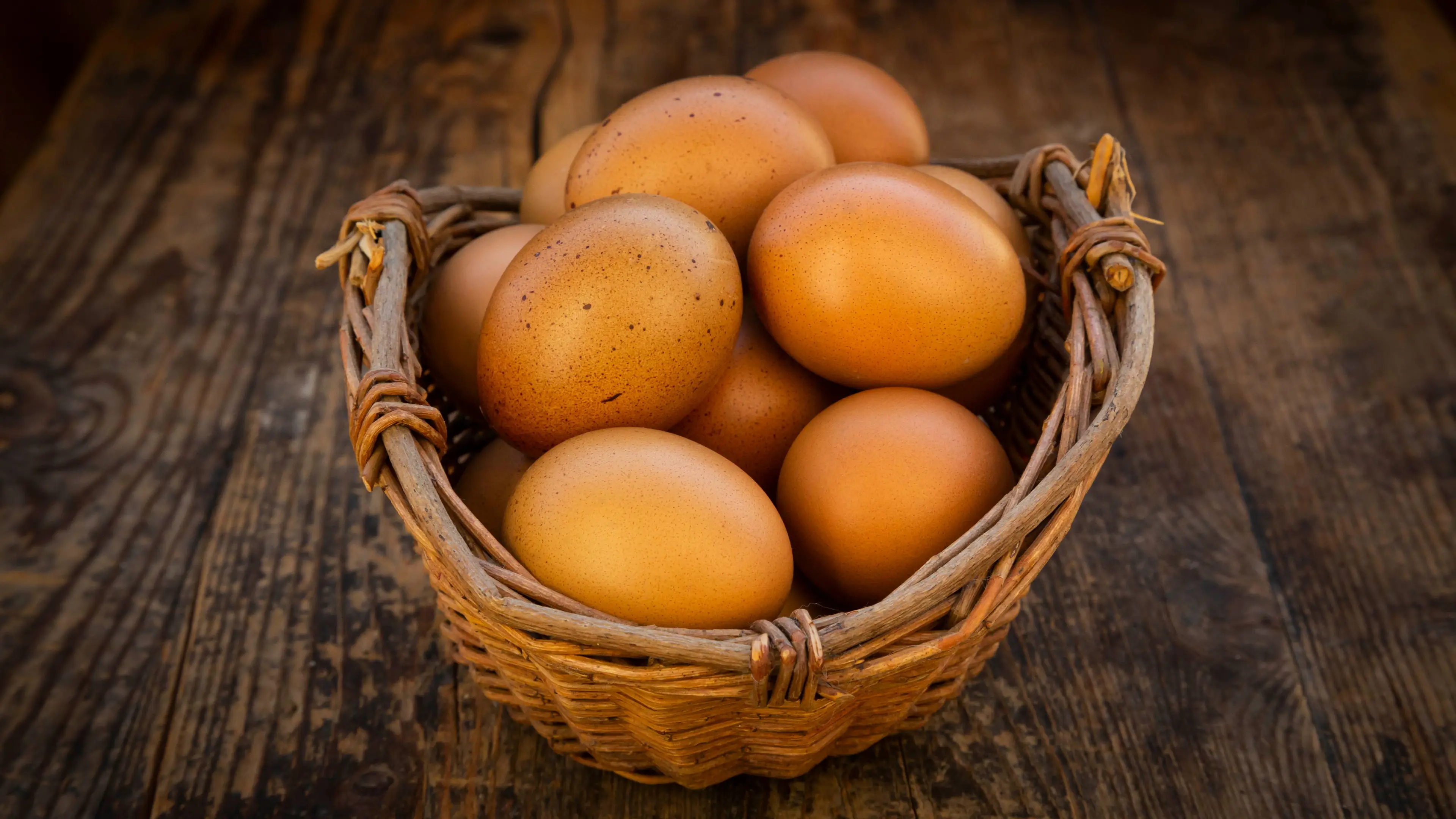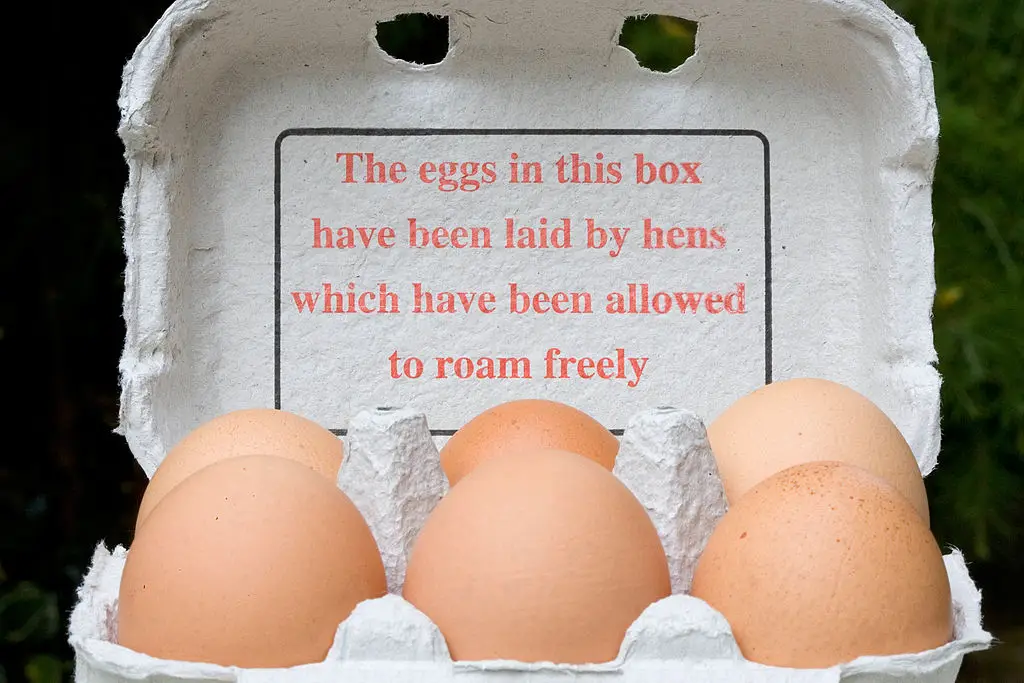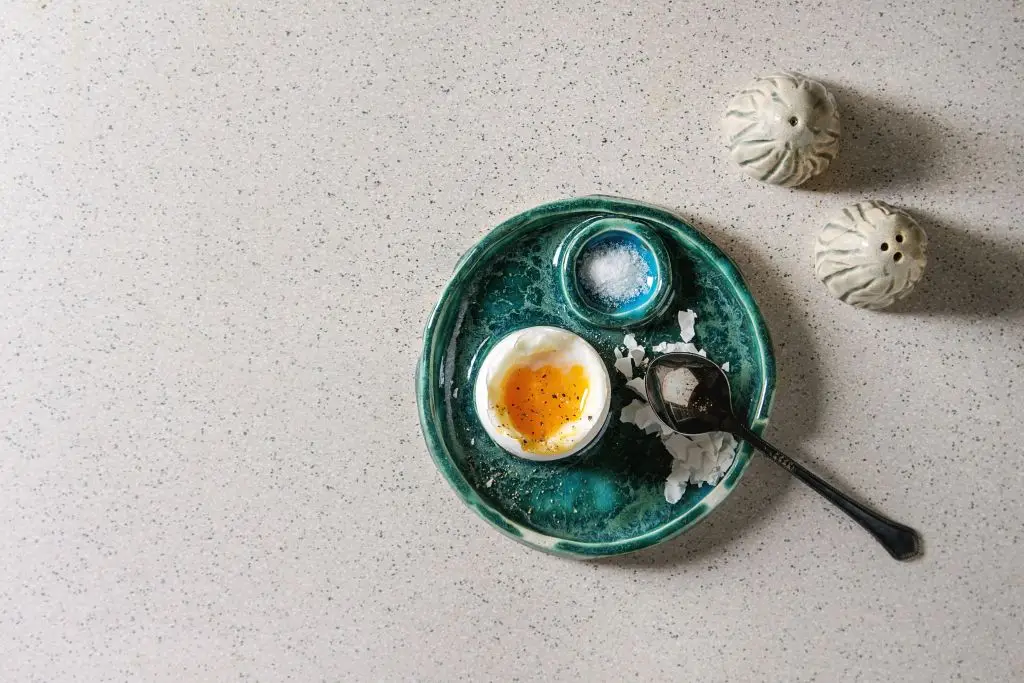
Whether you're eating eggs every day or only having them as a rare weekend brunch treat, chances are you'll have noticed that eggs don't all look the same.
From the standard brown eggs we're used to seeing lined up in neat cartons to those with spectacular blue shells, there's a bit of variation in eggs depending on where they come from - mysterious differences that can make some people wonder if they're healthy for us to eat or not.
The colour of the shell is determined by pigments produced during the egg-laying process. Shell colour can also vary within a single breed of hens, and can also be dependent on genetics, meaning some eggs appear darker or lighter depending on the individual hen.
Getting into the science of it, white feathered hens with white ear lobes usually lay white eggs, while brown feathered hens with red ear lobes typically lay brown ones.
Advert

If we're drilling into the terminology and biology, the pigment protoporphyrin - which is derived from heme and is the same compound that colours blood red - gives brown shells their shade. Blue eggshells, found in specialist breeds like the Araucana, contain biliverdin, which is also the pigment that can also give bruises a blue-green tint.
Now, knowing about the colour is all well and good, but the true question is: do different looking eggs taste different - and which ones are the best?
According to a Field Report by the University of Georgia, there's no difference for the speckled variety.
Their study looked at 13 different types of eggs ranging from the normal sounding 'white or brown speckled eggs' to the more worrying sounding 'dirty eggs' and 'bloodstained eggs'.
Speckled eggs are pretty common, and it turns out it's mainly down to the diet of the hens that are laying them.
The report stated: "While some breeds lay speckled eggs, the speckled eggs described here are abnormal. Abnormally speckled eggs have smaller speckles than are observed with excess calcium deposits, although these spots also are formed by small calcium deposits.
"These deposits are laid down before the formation of the cuticle, which is the last layer of the egg. This process occurs in the shell gland.

"Speckled eggs can happen if the shell gland is defective or if there are disturbances in the chicken house during the calcification process of egg formation. Too much calcium in a hen’s diet also can result in speckled eggs. These eggs are still salable and speckling does not negatively affect the quality of the egg."
Another point to consider is food safety, and we all want to know the food we eat is safe including eggs. In the UK, all British Lion eggs (whether white, brown, or even blue) carry the red Lion mark, which guarantees world-leading food safety standards.
They are also approved by the Food Standards Agency (FSA) to be eaten runny, even by vulnerable groups such as pregnant women, babies, and the elderly can enjoy them.
As the report states, the eggs are fine for sale and ultimately fine to be eaten, cooked, fried, poached or however you want to enjoy them.
